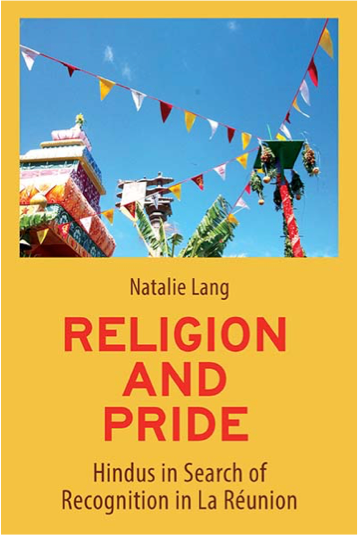Aspirational pride: Tamil Hindus in search of recognition in La Réunion
‘What we are is beyond identity markers. Beyond food, clothes, ... What we are is what we feel, and what we are proud of.’ said the moderator in a panel on Tamil aspirations in Singapore.
Listening to his words felt like a confirmation of what I was writing in my book, Religion and Pride: Hindus in Search of Recognition in La Réunion, which I was revising for publication at the same time as conducting anthropological fieldwork on Hindus in Singapore as a postdoctoral fellow at ARI.
The importance of pride had repeatedly attracted my attention during my doctoral fieldwork in La Réunion, a small island and French overseas department in the Indian Ocean. Pride—not in the sense of haughtiness, but as justified self-esteem—was something people often talked about, using the French term fierté. Wishes for pride, working toward pride, and performing pride not only showed in their life stories but also in their ritual and everyday activities.
What I term ‘aspirational pride’ has therefore become the key idea around which I wrote this book. It is closely linked to wishes for recognition as Hindus in the postcolonial French society.

Reunionese Hindus are French citizens, mostly with South Indian ancestors who had come to La Réunion as indentured labourers in the nineteenth century and who often mixed with labourers of African, Madagascan, Chinese, and European origins. Reunionese Hindus speak French and Creole rather than Indian languages, and many were baptised Catholic.
After a long phase of sparse contact with India, young Reunionese Hindus started to ‘reorient’ themselves toward India as a source of ancestral knowledge around the 1970s. The quest for religious knowledge and recognition shows, for instance, in learning projects about how to conduct Hindu death rituals in a Catholic-dominated society where many ‘Hindus’ have church burials.
Parallel to the search for knowledge in India and recognition in Reunionese society, Hinduism became more and more visible in public. The increasing visibility went hand in hand with a development from Hindu rituals being branded as sorcery by Catholic priests and others in Reunionese society toward more recognition of Hinduism as a religion. Today, unlike in Metropolitan France, Hinduism is very present in the form of numerous colourful temples and festivals on the island.
Religion and Pride relates questions about religion, globalisation, migration, diaspora, and secularism to an ethnography of Reunionese Hindus’ aspirations.
The notion of pride in this book allows me to consider Reunionese Hindus’ aspirations for recognition both in terms of recognition as a religious minority and in terms of social status. Furthermore, pride as an emotion highlights the felt dimensions of recognition processes.
Religion and Pride traces how pride and recognition relate to French laicism and notions of India, and how pride and recognition emerge from neo-liberal self-making projects, diverse forms of religious knowledge and magico-religious practices, Facebook interactions, and bodily ritual experiences.
The book results from twelve months of ethnographic fieldwork in 2014-15 and a five-week follow-up field trip in 2017.
My current insights into the aspirations of Hindus in Singapore confirm the relevance of pride and recognition to religious minorities. Even without mobilising the term ‘pride’ as in LGBT Pride or Black Pride, the institutional, social, and emotional dimensions of recognition processes are important in the making of religious and other minorities and social movements. In this spirit, Religion and Pride is also an opening into further debates about global religion and about recognition.
Natalie Lang is an anthropologist and postdoctoral fellow at ARI (2019-2021). Affiliated with both the Religion and Globalisation Cluster and the Asian Urbanisms Cluster, she conducts research on urban religion, gendered bodies, and Covid-19. Her doctoral thesis received the Frobenius Research Award.
The views expressed in this forum are those of the individual authors and do not represent the views of the Asia Research Institute, National University of Singapore, or the institutions to which the authors are attached.







